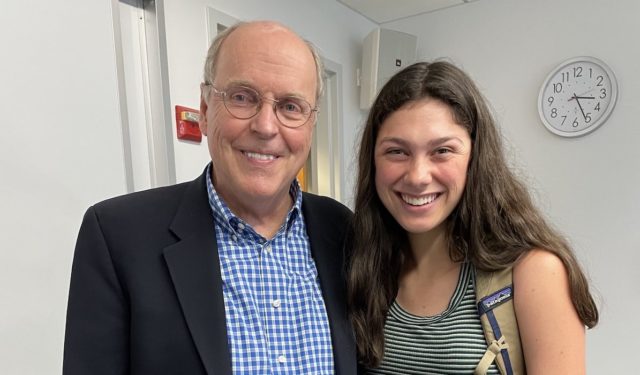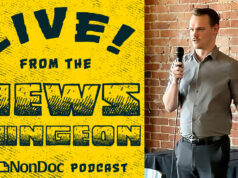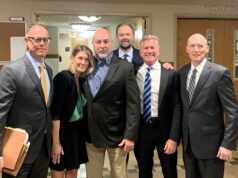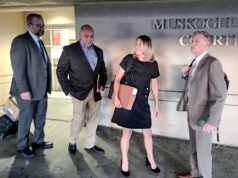
Growing up, my grandparents would take me to their hometown of Hobart every summer. They showed me all of their old haunts: the Big-a-Burger, the golf course, the farmhouse where my grandmother grew up. My granddad also took me to the office of the Hobart Democrat-Chief, the town’s only newspaper. It was once owned by his father, then by his brother and today by his nephew.
My granddad is something of a hobbyist historian, and he’d always have something he needed to check in the paper’s archives — usually old final scores for high school football games. When I was done fetching the results of games between Gotebo and Lone Wolf that had taken place before my grandfather was born, I’d go pull out the oldest papers I could find. As I read crumbling pages from the 1930s advising farmers about crop prices during the Dust Bowl, I could begin to understand the hopes, fears and everyday existences of people in a small town who had lived decades before me. I saw not only the way the paper reflected its readers, but the way it informed them, too.
I didn’t grow up thinking I wanted to become a journalist — I was set on becoming an environmental engineer throughout most of elementary and middle school — but during the days spent with my granddad, poring through the massive books holding the old broadsheets, I understood the importance of storytelling, and I realized I wanted to be a part of it.
From Stillwater to Chicago
By the time I was 14, I had left my dreams of being an engineer behind for the new purpose of becoming a journalist, despite the warnings of just about every adult in my life. But I ignored their concerns about my financial wellbeing and forged ahead. In 2019, I left Stillwater, the only place I had ever lived, for Northwestern University, located right outside the city limits of Chicago. I enrolled in the university’s Medill School of Journalism, but I decided before I arrived that I would pick up a second degree in political science, too.
When I thought about the intersection of my two studies, I always came back to two big questions: How does journalism impact its readers? What’s the best way to inform people about the policies that will affect their lives?
At Medill, I have been taught to treat subjects and sources with respect, to hold fast against misinformation, and that, above all else, “verification is the soul of journalism.” That is to say, as a reporter, your first priority should be constantly checking and rechecking that every fact you state is correct. I still think about those questions I posed, but I also think that these tenets provide a good place to start looking for answers.
Trust with readers is established through even-handedness and accuracy. When you provide people with robust, well-reported stories, they’re empowered to think more critically about the world around them. Finally, preserving these stories, no matter how big or small they may seem at the time, gives people the opportunity to look back and either draw strength from the past or learn how not to repeat it. (And every once in a while, it might help a kid snooping around in the backroom of a newspaper office realize that she’s in love with storytelling.)
My dad was a journalism major, and his father before him, and his father before him. While my middle school foray into engineering made me think I might break the cycle, frankly, I’m glad that I didn’t. I love to indulge my curiosity, I love to dig into the things I don’t understand and, more than anything, I love to tell stories. I’m so thrilled to write for NonDoc this summer as an editorial intern, and I hope that I will serve my home state well.





















